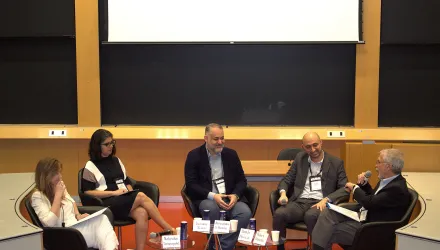Author
Joseph E. Aldy

Author
Tyler Felgenhauer
Author
William A. Pizer
Author
Massimo Tavoni
Author
Mariia Belaia
Author
Mark E. Borsuk
Author
Arunabha Ghosh
Author
Garth Heutel
Author
Daniel Heyen
Author
Joshua Horton

Author
David Keith

Author
Christine Merk
Author
Juan B. Moreno-Cruz
Author
Jesse L. Reynolds
Author
Katharine Ricke
Author
Wilfried Rickels
Author
Soheil Shayegh
Author
Wake Smith
Author
Simone Tilmes
Author
Gernot Wagner

Author
Jonathan B. Wiener








